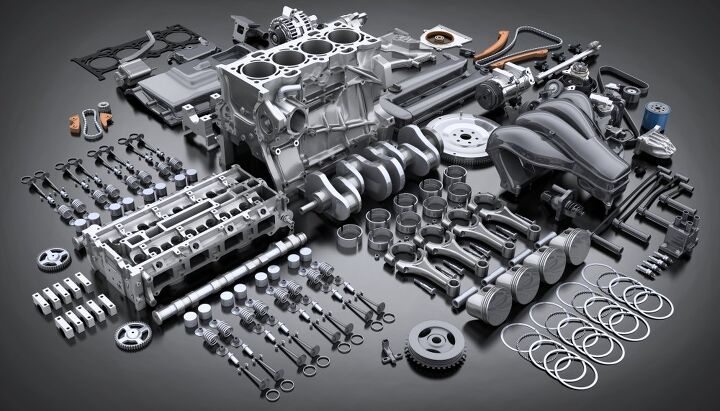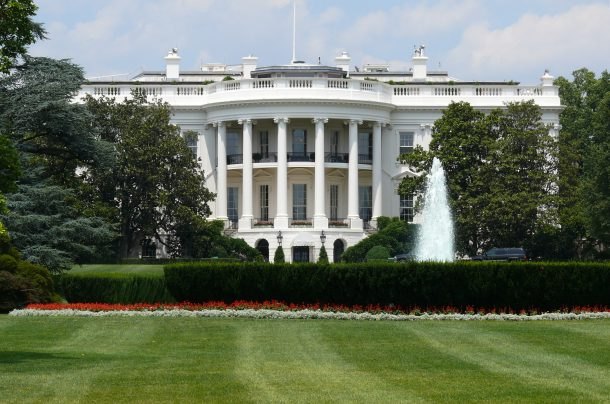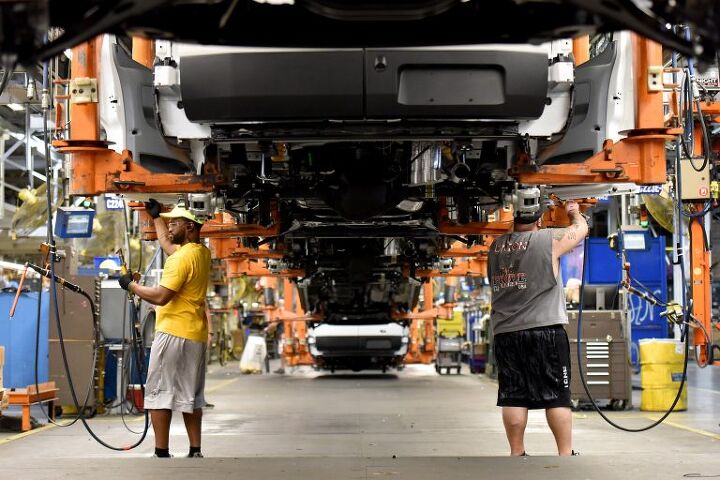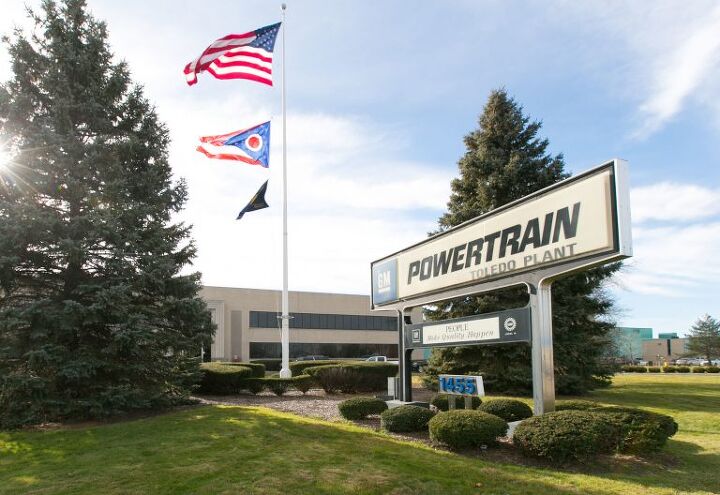#UnionNews
UAW and General Motors Are Backing Mask Mandates Again
Despite American carmakers and the United Auto Workers abandoning mask mandates at the end of June, there’s been an about-face in Wentzville, Missouri. The state witnessed an uptick of cases, encouraging both the UAW and General Motors to reintroduce masks and social distancing protocols.
The facility is responsible for the GMC Canyon and Colorado, as well as Chevrolet’s Savana and Express. It’s also likely to be the first facility of many we’re assuming will be told it’s time to go back to the old masking rules. But why is this happening so soon after everyone was given the green light to return to normal operations?
Mask Mandates Dropped By American Automakers, UAW
The COVID-19 Joint Task Force comprised of Detroit automakers and the United Auto Workers (UAW) has announced that it will be removing mask mandates for vaccinated employees. After meeting on Monday to discuss changes within state and federal health policies, the group decided masks should be made voluntary items for staffers. They could not get the rule change to coincide with the date the decision was made, however.
Lineworkers will instead be waiting until July 12th to pitch their masks in the trash bin so they can be deposited upon beaches and sea beds around the world. Of course, if a government agency (city, state, or county) wants to uphold old mandates or introduce new ones, the COVID-19 Joint Task Force said it would automatically comply. But that might not matter if employees have already decided to stop observing pandemic protocols.
GM Increases Investment Into Electrification, Stellantis Promises Four New EVs
There is plenty of electrification news this week, despite the brunt of consumers remaining seemingly disinterested in the automotive segment that’s entirely dependent upon batteries. General Motors recently announced that it would be increasing its EV investments through 2025 to $35 billion, noting that some amount of the funding will also be going toward autonomous vehicle development.
Meanwhile, Stellantis confirmed that it’s planning a quartet of battery-driven automobiles offering more utility than the pint-sized Fiat 500e. Those vehicles aren’t supposed to see assembly until 2024 and there are lingering questions about where the firm plans on building battery plants. But the UILM union has confirmed that the upcoming models are likely to be midsized and built at the company’s Melfi plant in Italy.
Largest Labor Group Says Autonomous Trucks Need Drivers
The Transportation Trades Department for the American Federation of Labor and Congress of Industrial Organizations (AFL-CIO) is spending its Tuesday telling the U.S. House of Representatives Energy and Commerce subcommittee that autonomous vehicles. Though it’s not because they occasionally run amok when left to their own devices. This is a matter of jobs.
Labor leaders have become increasingly concerned by the massive layoffs that will likely accompany the proliferation of electric vehicles, which require fewer components to assemble. But AVs have played second fiddle until fairly recently, with truckers doing most of the heavy lifting themselves. Now, the ALF-CIO is getting in on the action and hoping to convince legislators to establish formal requirements for there to be a driver behind in the wheel of all commercial vehicles over 10,000 pounds.
UAW Annoyed With GM's Mexican EVs
General Motors has decided its fifth electric vehicle facility should be in Mexico and has set aside $1 billion for its complex in Ramos Arizpe, Coahuila, Mexico. While a portion of the funds will go toward a new paint shop, the manufacturer also said the money would be used to prepare the site for EV and battery production, angering the United Auto Workers (UAW).
“This is a slap in the face for not only UAW members and their families,” stated UAW Vice President Terry Dittes. “General Motors automobiles made in Mexico are sold in the United States and should be made right here, employing American workers.”
Auto Suppliers Just Realized EVs Will Cost Them Jobs
The Motor & Equipment Manufacturers Association (MEMA) has informed a Senate Commerce subcommittee on transportation that the Biden Administration’s penchant for electric vehicles is starting to get under its skin. The union is recommending that the United States avoid setting any timeline for the proposed banning of internal combustion vehicles because it might cost a staggering number of jobs.
Ann Wilson, MEMA’s senior vice president of government affairs, said vehicle restrictions were unrealistic before 2040 and would obliterate entire segments of the auto industry without providing concrete assurances that the environment would be improved. While the latter claim can be argued endlessly, the former is pretty difficult to refute.
Ford Skipping Summer Shutdowns
Ford will be ignoring the typical two-week summer shutdown this year as a way to make up for production downtime caused by the semiconductor shortage. That’s undoubtedly going to complicate some vacation plans. But Blue Oval has already given loads of workers time off and has more downtime planned through April and now that the necessary factory maintenance can be accomplished while assembly lines are idled during supply chain issues, leaving employees to schedule any time off through their local union.
Automotive Industry Begs U.S. Government for Money
With President Biden planning to announce an infrastructure proposal that could easily exceed $2 trillion, the automotive industry has come to the realization that some of that money could be used to make its job easier. Following Tesla’s attempt at charming the federal government into making carbon credits more valuable, automotive lobbies, supplier groups, and the United Auto Workers (UAW) union have issued a joint letter asking for financial assistance.
Addressed to the president and congress, the document makes numerous requests for help with electric vehicle adoption rates. Industry groups would like to see Biden sign onto significant government tax incentives and subsidies for both buying and manufacturing electric vehicles. But this isn’t limited to passenger cars, they also want tax dollars used to help offset the prices corporations pay on commercial EVs intended for fleet use. Government grants would likewise be set aside for organizations that retool facilities for electric cars, while federal entities make a vow to buy up new fleets that aren’t reliant on liquid fuel.
Semiconductor Shortage Delays More Automobiles
The industry is having to stall more plants to contend with the semiconductor shortage that’s currently making it more difficult for you to get everything from a smartphone on up to your next vehicle. Ford Motor Co. recently informed employees that its Dearborn truck plant (easily one of its most profitable facilities) would need to be idled through the weekend to create a buffer for semiconductor chips. Worse yet, it’s not the first time the automaker has had to stall output of the F-150 this year. Ford has also started manufacturing trucks without all the necessary components, stating it would hold vehicles for a few weeks to account for supply chain delays.
Meanwhile, Chrysler has made a similar announcement about its minivan output as Windsor Assembly faces another chip deficit. Unifor Local 444 recently stated that the facility would be staring down the barrel of a four-week shutdown starting next week. Considering Chrysler’s minivans literally just dealt with a three-week stall over the chip shortage, union workers are understandably upset. Days earlier, General Motors Canada also announced that its CAMI plant in Ingersoll, Ontario, will likely remain idle until the middle of April.
Stellantis Introducing 84 Hour Work Week in Sterling Heights
Stellantis is reportedly bringing back a controversial policy that would have skilled trade workers doing 12 hour days for 7 days a week as a way to maximize shift coverage. The original arrangement had staff pushing long hours only to be rewarded with a full week off. But it was temporarily nixed after workers complained about the schedule and fretted over how the change might impact benefits. An alternative schedule prioritizing flexibility was created, though the automaker (still owned by FCA at the time) stressed that it needed more tradespeople working on the weekends to help avoid production gaps.
The 84 hour week is now back, with Stellantis testing it out at Sterling Heights Assembly, where the Ram 1500 is manufactured. However, it doesn’t appear to have grown in popularity.
GM Pouring $75 Million Into Toledo Transmission Plant
General Motors will reportedly be making a $75 million investment into Toledo Transmission later this year. This follows an earlier $39 million investment from GM set aside for the eight-speed rear-wheel-drive transmission, which came as a package deal offering another $32 million for Defiance Casting Operations.
UAW Reaches Corruption Settlement With Justice Department
The U.S. Department of Justice has reached a proposed civil settlement with the United Auto Workers (UAW) in the gigantic corruption case that absorbed two former presidents and a slew of union officers over the last few years. With many involved already serving the first part of their prison sentence, the UAW has reportedly agreed to hold a referendum among the rank-and-file to change the way it elects the top brass. The proposal predictably includes some court oversight designed to catch any new instances of fraud coming from inside the union but doesn’t appear to address the corporate aspect.
As a positive, it’s not assumed that the union will see a complete government takeover. Like laundry, it’s already better to separate your alleged corruption to create legal buffer zones.
GM Says Labor Disputes Are Making South Korea Look Unmanageable
Over the last few years, General Motors has been cautiously hinting that it wants to pull out the Korean market. In 2018, the automaker started worrying about regional bankruptcy and shuttered one of its South Korean facilities after noting that labor costs had been on the rise. While the government handed GM 850 billion won ($712.85 million) in industrial aid to stick around, the region is known for labor disputes. We even celebrated the fact that South Korean Hyundai failed to strike in 2019. General Motors was less fortunate, however.
The Detroit-based company is once again discussing abandoning the market and citing labor issues as the primary cause. Employees have been organizing limited daily strikes since October 30th. Despite only lasting part of a single shift, it’s impacting production and will only end once the automaker ends a wage freeze enacted during the aforementioned deal in 2018.
Unifor Ratifies GM Labor Agreement, Oshawa Saved
Unifor members overwhelmingly ratified a new three-year contract with General Motors, effectively ending the union’s 2020 auto bargaining with Detroit automakers. Members backed the contract with 85 percent approval and secured meaningful investments into Canada’s automotive industry, including the $1 billion (USD) investment that saves Oshawa Assembly. It’s an important victory for the union and the Canadian auto workers it represents.
“This contract solidifies and boldly builds on GM’s Canadian footprint, with a $1.3 billion dollar investment that brings 1,700 jobs to Oshawa plus more than $109 million to in-source new transmission work for the Corvette and support continued V8 engine production in St. Catharines,” said Unifor National President Jerry Dias. “Jobs at all three Canadian sites are secure for the life of this agreement, including at the Woodstock Parts Distribution Centre, which will also see upgrades.”
Unifor Gets Something Done, Oshawa to Reopen
The closed General Motors plant in Oshawa, Ontario, will be reopening after the automaker reached a deal with Canadian workers. GM says that it will invest up to $1.3 billion in its facility and hire up to 2,000 workers. It’s an impressive outcome for a region that looked fated to struggle at maintaining automotive jobs for years to come. While the tentative three-year deal with Unifor has yet to be approved by workers, we’re doubtful they’ll be anything but supportive.
Despite being the victim of GM’s restructuring program and closing shop in 2019, the historic Oshawa Car Assembly (est. 1907) appears poised to once again begin churning out Chevrolet Silverado and GMC Sierra pickups for the masses.






























Recent Comments